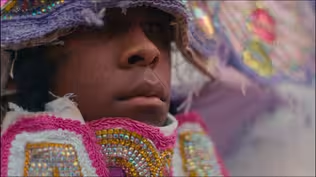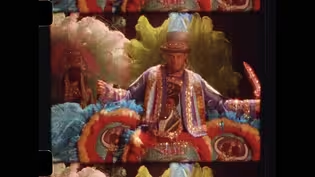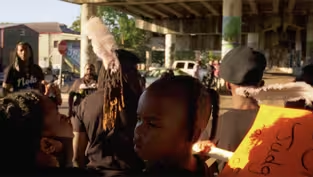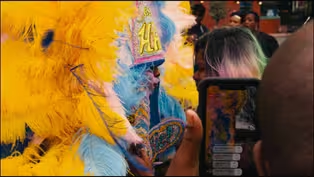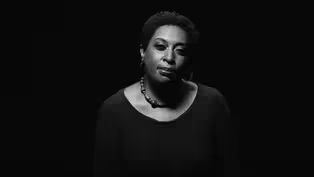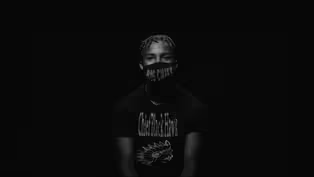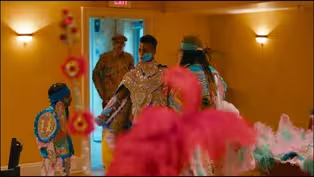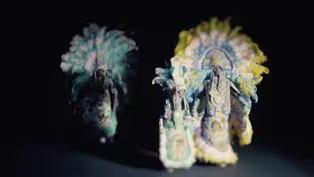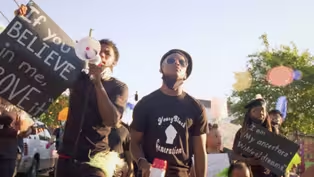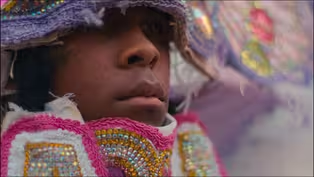
Beyond the Lens with Jonathan Isaac Jackson
Clip: Season 11 Episode 1 | 4m 30sVideo has Closed Captions
A conversation with director Jonathan Isaac Jackson of BIG CHIEF, BLACK HAWK.
Jonathan Isaac Jackson talks about the making of his film, BIG CHIEF, BLACK HAWK, and the connection to the culture, history and people of New Orleans, Louisiana. The filmmaker also shares the importance of incorporating his identity and Black perspective in capturing and telling the story.
Problems playing video? | Closed Captioning Feedback
Problems playing video? | Closed Captioning Feedback
Major funding for America ReFramed provided by the John D. and Catherine T. MacArthur Foundation, Wyncote Foundation, and the Corporation for Public Broadcasting. Additional funding provided by Open Society Foundations,...

Beyond the Lens with Jonathan Isaac Jackson
Clip: Season 11 Episode 1 | 4m 30sVideo has Closed Captions
Jonathan Isaac Jackson talks about the making of his film, BIG CHIEF, BLACK HAWK, and the connection to the culture, history and people of New Orleans, Louisiana. The filmmaker also shares the importance of incorporating his identity and Black perspective in capturing and telling the story.
Problems playing video? | Closed Captioning Feedback
How to Watch America ReFramed
America ReFramed is available to stream on pbs.org and the free PBS App, available on iPhone, Apple TV, Android TV, Android smartphones, Amazon Fire TV, Amazon Fire Tablet, Roku, Samsung Smart TV, and Vizio.
Providing Support for PBS.org
Learn Moreabout PBS online sponsorship(percussion and singing continue) JACKSON: Mardi Gras, you know, it has two different aspects to it.
There's the version of it that most people see, and then there's, you know, the version of it that, you know, a lot of people experience to a certain extent.
And a lot of that, to me, at least, is, you know, Mardi Gras Indians and connections to the actual African culture that we have in New Orleans, and also our connections to Indigenous people.
NARRATOR: And when you experience our Mardi Gras, you know exactly what it is.
Ancestors congregating in the present through chants and dance, passing on words and movements that are as old as time itself.
My name is Jonathan Isaac Jackson.
I am the director, producer, writer, co-cinematographer of Big Chief, Black Hawk.
I'm from New Orleans, Louisiana.
My film takes place in New Orleans, Louisiana.
You know, we made this film because we wanted to highlight culture in New Orleans, but we also wanted to ensure that, that it was made by somebody that was local and somebody that was African American.
Somebody who actually had a true connection with the culture.
And, you know, over the course of my career, up until this point, you know, I kind of felt it was just important to tell a story.
But now I feel like it's more important to add my identity into the story, to pinpoint and understand who you are before you start venturing out and figuring out who anyone else is.
Doing the research and having those conversations, and once again, it's something that I kind of already knew, like, we have this thing where we always say that, you know, most Black people have Indigenous or Native American in our blood.
I didn't think it was, but I wanted to ensure that this Mardi Gras Indian thing wasn't appropriated.
Ensure there was a true connection to what I was creating.
EDWARDS: Paying homage is an ancient African tradition.
And so when you hear people say, "We pay homage to the Native Americans in the Black masking culture," what we're actually doing is expressing our appreciation for some of their help in allowing us to run away to their camps.
DARENSBOURG: I don't think that, of Mardi Gras Indians as, uh, adversaries of Indigenous people-- definitely strong allies.
Our tribe has traditionally been very willing to incorporate people of African ancestry into our tribe or to intermarry with them.
I am of Indigenous and African ancestry and European ancestry.
There's no shame to be Indigenous and African.
There's no contradiction.
Black is beautiful.
So it was coming to a place where it was real and it was honest.
And we were having these conversations about what is what, what's going on.
But after that, it became about, you know, meeting these kids, and meeting Miss Tee, and... First off, my big cousin Eric Smith was masking with a tribe.
And my mom was looking for ways to help my brother Tyrell, who's the gang flag of my tribe, cope with his ADHD.
JACKSON: Getting to see T suited up and ready to, to go out on Mardi Gras day.
And there was something that happened when I, when I started shooting it, and I noticed a change.
But it was this, this euphoric situation where I see the, you know, a 16-year-old kid turn into somebody that was, like, an old soul.
TERRANCE: You go to Mommy, give her a hug, and tell her how much you're thankful for her, okay?
JACKSON: Like, it was literally seeing a transformation.
And now I am somebody who feel that I am guided by ancestors.
And that was the most special thing that I felt happen.
Like, any time that I see these kids suit up, like, I'm entranced and engulfed in this idea of ancestors, of being able to communicate with ancestors, and, and looking at how this tradition is really, you know, a way of, of passing down communication through generations.
And I think that's something that a lot of people don't notice.
This idea of, you know, being taken away from our homeland in bondage, but having all these, these sounds and these, these suits, and these words that essentially are calling back out to our ancestors, to either let them know where we are or to try to find our way back home.
These are, this, this is my family.
Like, I still attend these kids' games.
So that's what I'm saying, like, they're not characters.
This is not, like, a traditional film.
Big Chief, Black Hawk | Appreciation, Not Appropriation
Video has Closed Captions
Clip: S11 Ep1 | 1m | What is the difference between cultural appropriation and appreciation? (1m)
Big Chief, Black Hawk | COVID-19: Culture Killer
Video has Closed Captions
Preview: S11 Ep1 | 1m 12s | The cultural impact of the COVID-19 pandemic on the city and people of New Orleans. (1m 12s)
Big Chief, Black Hawk | Dedication to Mother and Tribe
Video has Closed Captions
Clip: S11 Ep1 | 43s | The dedication of brothers to their Mardi Gras Indian tribe while honoring their mother. (43s)
Big Chief, Black Hawk | Mardi Gras Indians and Music
Video has Closed Captions
Clip: S11 Ep1 | 1m | One element of New Orleans culture is music, which is influenced by Mardi Gras Indians. (1m)
Big Chief, Black Hawk | Preview
Video has Closed Captions
Preview: S11 Ep1 | 30s | A brief look at the youngest Mardi Gras Indian Big Chief and “the culture” in New Orleans. (30s)
Big Chief, Black Hawk | The Joy of Brotherhood
Video has Closed Captions
Clip: S11 Ep1 | 3m 34s | The brotherhood - with love & support - of Big Chief Tee, Gang Flag Ty and Spyboy Fatman. (3m 34s)
Big Chief, Black Hawk | The Mardi Gras Experience
Video has Closed Captions
Clip: S11 Ep1 | 54s | What was your first Mardi Gras experience? (54s)
Big Chief, Black Hawk | The Next Generation: Stepping Up
Video has Closed Captions
Clip: S11 Ep1 | 4m 57s | New Orleans' young Black generation stand up to injustice after the death of George Floyd. (4m 57s)
Big Chief, Black Hawk | Trailer
Video has Closed Captions
Preview: S11 Ep1 | 1m 32s | A brief look at the youngest Mardi Gras Indian Big Chief and “the culture” in New Orleans. (1m 32s)
Providing Support for PBS.org
Learn Moreabout PBS online sponsorshipSupport for PBS provided by:
Major funding for America ReFramed provided by the John D. and Catherine T. MacArthur Foundation, Wyncote Foundation, and the Corporation for Public Broadcasting. Additional funding provided by Open Society Foundations,...
